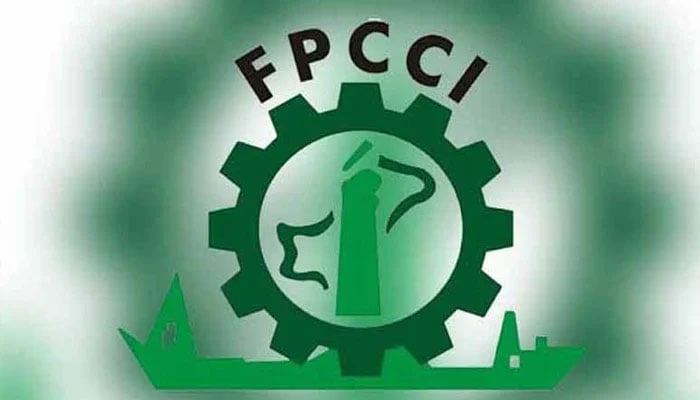FPCCI, PTBA team up to boost tax culture
KARACHI: The Federation of Pakistan Chambers of Commerce & Industry (FPCCI) and the Pakistan Tax Bar Association (PTBA) agreed on Tuesday to form a joint committee to promote tax culture in Pakistan, broaden the tax base, simplify taxation rates and create awareness among the business community.
The agreement was reached during a visit by the newly-elected PTBA President Anwar Kashif Mumtaz and his team to the Federation of Pakistan Chambers of Commerce & Industry headquarters in Karachi, where they discussed matters of mutual interest regarding taxation reforms.
Mumtaz outlined his association’s plan of action, which envisages that chambers and associations should have zero tolerance for non-filers and should not verify or endorse those businesses that are not regular tax filers.
"Besides, FPCCI & PTBA should jointly organize National Tax Day on 24th February 2024 and there should be valid, up-to-date and reliable national tax database," a statement said. Furthermore, chambers and associations should promote awareness in the business community to pay their taxes and Federation of Pakistan Chambers of Commerce & Industry & PTBA should also collaborate in research & development activities to propose taxation reforms to the federal and provincial governments.
Acting FPCCI Chief Salman Chawla reiterated FPCCI’s stance that documentation of the economy is paramount; however, active tax filers should be treated with respect and facilitated.
Being in the system should be rewarding and not the other way round, he added. Chawla informed that FPCCI advocating taxation reforms in its proposals for the federal budget 2023 – 24; instead of leveraging the opportunity for concessions.
"We, at FPCCI, believe that broadening of the tax-base and end to harassment will be more productive as compared to sticking to the approach of taxing the taxpayers even more," he added.
M A Jabbar, vice president FPCCI, opined that simplification and rationalization of the taxation system in line with global best practices is required in Pakistan to adopt the models of developed economies.
He stressed that tax collection machinery and adjudication should be separated in order to maintain integrity, fairness and administrative efficiency. Jabbar added that a meaningful consultative process with the business, industry and trade community can yield more results for the country and its economy as opposed to issuance of thousands of notices.
-
 James Van Der Beek's Final Conversation With Director Roger Avary Laid Bare: 'We Cried'
James Van Der Beek's Final Conversation With Director Roger Avary Laid Bare: 'We Cried' -
 Jaden Smith Walks Out Of Interview After Kanye West Question At Film Premiere
Jaden Smith Walks Out Of Interview After Kanye West Question At Film Premiere -
 Michelle Obama Gets Candid About Spontaneous Decision At Piercings Tattoo
Michelle Obama Gets Candid About Spontaneous Decision At Piercings Tattoo -
 Why Halle Berry Wasn't Ready For Marriage After Van Hunt Popped Question? Source
Why Halle Berry Wasn't Ready For Marriage After Van Hunt Popped Question? Source -
 Bunnie Xo Shares Raw Confession After Year-long IVF Struggle
Bunnie Xo Shares Raw Confession After Year-long IVF Struggle -
 Brooks Nader Reveals Why She Quit Fillers After Years
Brooks Nader Reveals Why She Quit Fillers After Years -
 Travis Kelce Plays Key Role In Taylor Swift's 'Opalite' Remix
Travis Kelce Plays Key Role In Taylor Swift's 'Opalite' Remix -
 How Jennifer Aniston's 57th Birthday Went With Boyfriend Jim Curtis
How Jennifer Aniston's 57th Birthday Went With Boyfriend Jim Curtis -
 JoJo Siwa Shares Inspiring Words With Young Changemakers
JoJo Siwa Shares Inspiring Words With Young Changemakers -
 James Van Der Beek Loved Ones Breaks Silence After Fundraiser Hits $2.2M
James Van Der Beek Loved Ones Breaks Silence After Fundraiser Hits $2.2M -
 Disney’s $336m 'Snow White' Remake Ends With $170m Box Office Loss: Report
Disney’s $336m 'Snow White' Remake Ends With $170m Box Office Loss: Report -
 Travis Kelce's Mom Donna Kelce Breaks Silence On His Retirement Plans
Travis Kelce's Mom Donna Kelce Breaks Silence On His Retirement Plans -
 Premiere Date Of 'Spider-Noir' Featuring Nicolas Cage Announced
Premiere Date Of 'Spider-Noir' Featuring Nicolas Cage Announced -
 Pedro Pascal's Sister Reveals His Reaction To Her 'The Beauty' Role
Pedro Pascal's Sister Reveals His Reaction To Her 'The Beauty' Role -
 Kate Middleton Proves She's True 'children's Princess' With THIS Move
Kate Middleton Proves She's True 'children's Princess' With THIS Move -
 Paul Anka Reveals How He Raised Son Ethan Differently From His Daughters
Paul Anka Reveals How He Raised Son Ethan Differently From His Daughters




